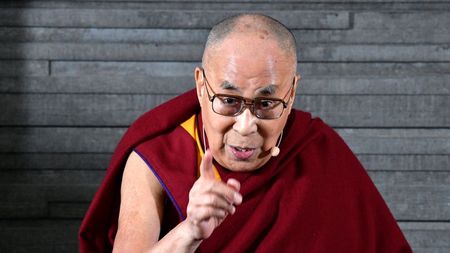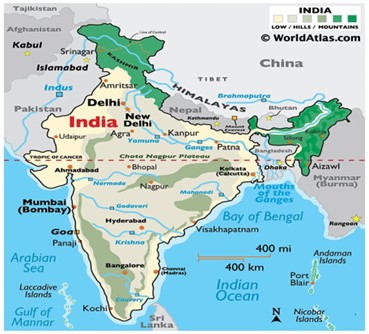
Stability and Succession in Tibet

In 2011, Xi Jinping, then Vice-President of the People’s Republic of China, stated that China should “govern the nation by governing the borders; govern the borders by first stabilizing Tibet; ensure social harmony and stability in Tibet and strengthen the development of border regions”.
Since then, this slogan has been repeated again and again by the Communist Party’s satraps, particularly those posted in Tibet.
1962 Border War
In November 1962, the People’s Liberation Army withdrew from the positions occupied since one month in Northern India; one of the main issues then facing Mao’s generals was that Tibet was extremely ‘unstable’; in spite of three years of ‘pacification’ between March 1959 and 1962, Tibet was still in turmoil.
This is documented in great detail in the new book When the Iron Bird Flies: China’s Secret War in Tibet authored by the Chinese scholar Jianglin Li. Based on Chinese archival documents (mainly from local archives in Tibet, Sichuan, Gansu and Qinghai), this “untold story reshapes our understanding of Chinese and Tibetan history”, says the blurb.
It is clear today that due to the unstable situation on the plateau, China would have been unable to sustain a longer conflict in Winter 1962.
Is Tibet ‘stable’ today?
The answer is No. Let me give a few examples.
On February 25, 2022, Tsewang Norbu, a well-known Tibetan pop star set himself on fire in Lhasa; according to The Economist: “Fans have spent the past month mourning his death. The story of Tsewang Norbu is shrouded in mystery.”
Later, the Chinese foreign ministry suggested that Norbu might still be alive, admitting that a man in Tibet had “attempted suicide by self-immolation. …The man had long been troubled by mental illness and had attempted suicide multiple times.”
Nobody was convinced.
A few months earlier, the 25-year-old who had written songs like Tsampa, an ode to the Tibetan staple food of roasted barley flour, had competed on a popular reality show ‘Sing! China!’ in which, Norbu also sang Return to the Homeland, wearing a traditional chupa dress.
His fans in exile say it showed Norbu’s true feelings – his love for his own Tibetan identity.
Incidentally, the singer selected the most sensitive place in Lhasa, the Potala Palace, the residence of the Dalai Lamas, to end up his life.
On April 1, it was reported that a Tibetan self-immolated in front of a police station in Kyegudo in Eastern Tibet; according to Tibet.net, “The self-immolation took place around 4 pm on March 30, near a Buddhist monastery in Yushul Tibetan Autonomous Prefecture.”
Radio Free Asia said that the man was called Tsering Samdup: “The Tibetan who self-immolated is a very well-educated person. He was immediately taken away by the Chinese police and no one is allowed to meet or inquire about the self-immolator.” The same pattern takes place each time. The body is immediately removed and the family is kept without news.
Radio Free Asia noted: “The information blockade in Tibetan areas have been intensified in the past few years, which makes it increasingly difficult for the news of any sort to come out of Tibet.”
A few days later, the Tibetan Centre for Human Rights and Democracy (TCHRD) in Dharamsala reported the death of Tashi Phuntsok, Taphun, for his friends. He self-immolated at around 5 am local time on March 27 in front of the Public Security Bureau (PSB) office at Kirti Monastery in Ngaba Tibetan and Qiang Autonomous Prefecture of Sichuan Province. He set himself on fire “to protest the repressive policies enforced by the Chinese government in Tibet,” said TCHRD.
This wave of recent immolations demonstrates that Tibet is far from having achieved the stability dreamt by Xi Jinping.
The Tibetan Loyalty
India needs to watch carefully, as the outcome of a future conflict with China could depend on the loyalty of the populations in occupied Tibet.
Another issue was highlighted by Sophie Richardson, the Director of Human Rights Watch: China tried to hide the death of a 86-year-old lama, Tulku Dawa, who passed away in Lhasa on January 30, 2022.
Tulku Dawa had been arrested in May 2010 at his monastery, Shag Rongbo, in the Nagchu Prefecture: “Officials accused him of seeking guidance from the exiled Dalai Lama in selecting the reincarnation of the Rongpo Chöje, the monastery’s chief lama. …Tulku Dawa was reportedly sentenced to seven years in prison, and banned from ever returning to the monastery.”
After his demise, Chinese officials told his devotees to scrap any mention of his death from social media; they were forbidden to take photos of the body: “Only devotees from Lhasa were permitted to pay their respects with severe restrictions. Although authorities allowed the body to be returned to the monastery for cremation, local people were excluded from the event and participating monks were body-searched.”
Does it show the attitude of a mature or normal State?
The importance of the Dalai Lama’s succession
In this context, the issue of the Dalai Lama’s succession is vital for the Tibetans, but for India too, especially at a time China is using every occasion to reaffirm that it is the Communist leadership who will decide the successor of the present Dalai Lama.
Last year, a White Paper published by Beijing and entitled Tibet Since 1951: Liberation, Development and Prosperity, stated: “In 1793, the Qing [Manchu] government …stipulated that the reincarnation of the Dalai Lama and other grand Living Buddhas had to follow the procedure of drawing lots from the golden urn.”
Though the Golden Urn procedure was rarely used thereafter, the fact remains that the Manchus had realized the weakness in Tibet’s system of governance, i.e. the rule by reincarnation and were quick to exploit it.
The instability of the rule by incarnation can be attributed to the gap between the time a Dalai Lama passes away and when his successor is old enough to be able to practically assume power. The twenty crucial years in between the two have always been used by incompetent regents or the Ambans (the Chinese ambassadors in Lhasa) to influence Tibetan politics.
During what the British officials called the ‘Minority’, no decision was taken by Regents too cautious that they could be criticized at a later stage.
It is probably the main reason why Tibet lost its Independence.
A Way Out
One solution to avoid the past issues after the present Dalai Lama’s departure, has been mentioned by the Tibetan leader himself in 2011, in an elaborate statement about his succession.
The Dalai Lama spoke of the origin of the custom of recognizing ‘Emanation Bodies’ or ‘tulkus’; he further elaborated: “The main purpose of the appearance of a reincarnation is to continue the predecessor’s unfinished work to serve Dharma and beings.”
The Tibetan leader proposed an alternative, which would be less disruptive: “Alternatively it is possible for the Lama to appoint a successor who is either his disciple or someone young who is to be recognized as his emanation.”
Another problem linked to incarnations is that finding the new reincarnation is a rather unscientific process which can be manipulated at will; for example, doubts have been be raised about the authenticity of lamas such as Gyaltsen Norbu, the Chinese-selected Panchen Lama.
Viewed from a political angle, many issues would be solved if the Dalai Lama decides to go for an ‘emanation’.
He himself would select the next Dalai Lama and the Chinese would have nothing to say in the process; further, it would bring a far greater stability to the political scene in exile and in the Indian Himalayas.
Ultimately of course, it is the Dalai Lama’s choice and a secular state like India cannot intervene in his decision.
However, India should officially state that the Government will stand by the Dalai Lama’s decision, while Delhi should think of the impact on the Indian populations of the borders with Tibet.
An emanation would a far better option in the present tumultuous times which the Land of Snows (as well as the planet) is going through …and a Chinese Dalai Lama would certainly not be in India’s interests.
Sixty years after the debacle in NEFA, the time has come for India to show its support to the Tibetan leader, while keeping in mind its own interests.
******************
Disclaimer
The opinions expressed in this article are the author’s own and do not reflect the views of Chanakya Forum. All information provided in this article including timeliness, completeness, accuracy, suitability or validity of information referenced therein, is the sole responsibility of the author. www.chanakyaforum.com does not assume any responsibility for the same.
Chanakya Forum is now on . Click here to join our channel (@ChanakyaForum) and stay updated with the latest headlines and articles.
Important
We work round the clock to bring you the finest articles and updates from around the world. There is a team that works tirelessly to ensure that you have a seamless reading experience. But all this costs money. Please support us so that we keep doing what we do best. Happy Reading
Support Us





















POST COMMENTS (0)